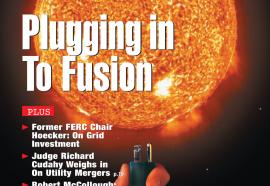The CIO Forum: The Changing Face of Energy I.T.
Budgets are expected to increase, even as new IT challenges present themselves.
In our annual technology forum, we talk with tech/information specialists at four companies: Patricia Lawicki at PG&E; Ken Fell at the New York ISO; Mark C. Williamson at American Transmission Co.; and John Seral at GE Energy.








